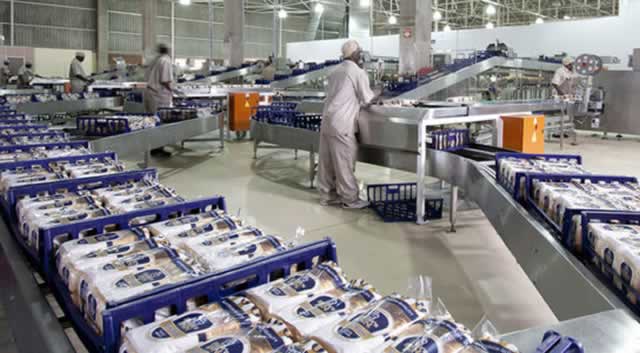Bakers Inn increases market share to 48pc

Oliver Kazunga Senior Business Reporter
BAKERS Inn says it has increased its market share to about 48 percent from 42 percent across the country on the back of increased investment on plant upgrade and maintenance.
Last month, the giant bread manufacturer, a division of Innscor Africa Limited, commissioned a $1,5 million new production plant at its Belmont factory in Bulawayo. The commissioning of the new production plant has also seen the bread manufacturer increasing its production capacity at the Bulawayo factory from 120 000 loaves a day to 220 000, enough to meet market demand in the southern region of the country.
“The commissioning of the new plant has seen our factory in Bulawayo being able to produce 220 000 loaves a day. In the early days of commissioning of the new plant and prior to installation of a slicer, we experienced some challenges in satisfying market demand because we could not slice what was being produced,” general manager Felix Vazhure said in an interview yesterday.
“But that has been addressed after installing the slicer. Our market share at national level has gone up from 42 percent to between 45 and 48 percent as a result of the latest investment.” Recently the firm’s chief executive officer Ngoni Mazango who is also the National Bakers Association of Zimbabwe president said given some time his company would achieve the targeted 55 percent market share.
“As a company, we are proud that if we did not have the customers, we would not be here today. Bulawayo used to be the hub for industrialisation in Zimbabwe and we still believe there are opportunities despite de-industrialisation that has occurred in recent years. As Bakers Inn we believe given some time, we will achieve our target of 55 percent market share,” he said.
On challenges facing the bakery industry, Mr Mazango said there were a myriad of issues constraining growth and development of companies in the sector among them cost of tariffs on electricity and water.
“The bakery sector is grappling with challenges such as the cost of tariffs on Zesa and water, which are very high as well as wages. As a sector, we have not increased the price of bread,” he said.
Mr Mazango said suppliers of critical raw materials such as fats by companies such as Olivine Industries were no longer doing that forcing the bakeries to import. Due to the prevailing foreign currency shortages, the bakeries were also struggling to pay for imported raw materials.
Last month, the NBAZ said it was appealing to the Reserve Bank of Zimbabwe to clear over $45 million in nostro account balances to ensure its members import raw materials on time.
Since last year, the local manufacturing sector through the Confederation of Zimbabwe Industries has raised concern over delays in the processing of outgoing payments for the procurement of raw materials. In the 2017, mid-term monetary policy statement presented early last month, RBZ Governor Dr Mangudya announced a $600 million Nostro account stabilisation facility. The companies are expected to start drawing down money from the nostro stabilisation facility.








Comments